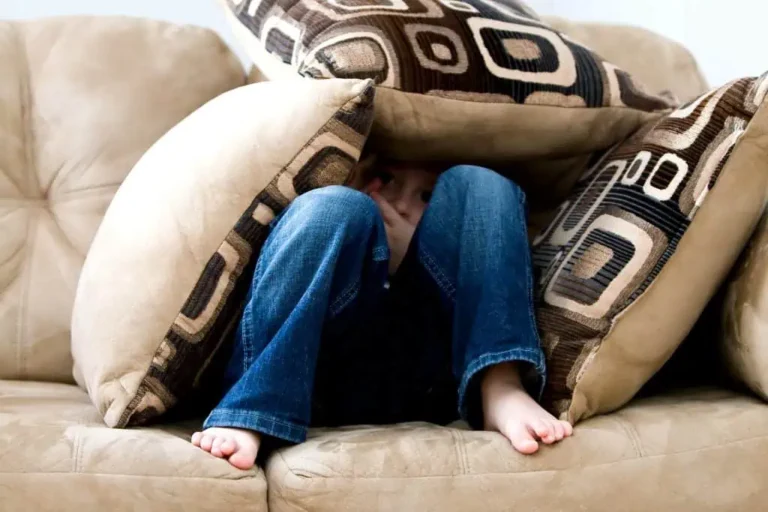Is childhood stress really connected to chronic disease? There is definitely a distinct connection between the mind and the body. Ongoing research continues to validate this fact. Some of the most interesting research about this topic, in my opinion, revolves around the connection between childhood trauma and the inflammatory response, specifically the autoimmune response.
But Before We Go Any Further, What is Autoimmune Disease?
An autoimmune disease is one of up to 80 different inflammatory disorders that affect approximately 50 million people in the United States. When a person has an autoimmune disease, the body begins to produce antibodies that attack and damage its own tissue instead of fighting disease as they were intended. This happens in response to a trigger. Oftentimes, the trigger is unknown, but research has identified common triggers as certain bacterial and viral infections, certain medication, certain chemical or environmental toxins, and, as studies are showing more and more, a stressful childhood.
Some of the most common autoimmune diseases are:
- rheumatoid arthritis,
- lupus,
- diabetes type 1,
- Celiac’s disease,
- multiple sclerosis,
- Crohn’s disease,
- ulcerative colitis,
- Hashimoto’s thyroiditis,
- Grave’s disease,
- Guillian-Barre,
- myasthenia gravis,
- ALS,
- scleroderma,
- Sjögren’s,
- and psoriasis.
Symptoms vary with each autoimmune disease, but some common symptoms include fatigue; joint or muscle pain; muscle soreness, numbness, or weakness; changes in weight; changes in bowel movements; abdominal pain; and skin rashes.
The ACE-Autoimmune Connection
A study was conducted in the late 90s on 15,357 adults. Participants were asked whether or not they had endured any adverse childhood experiences (ACEs). Based on the participants’ responses, they were given an ACE score and researchers used this score to gauge childhood stress.
What researchers found was that people with 2 or more ACEs were at 70-100% increased risk for hospitalizations with autoimmune-type diseases decades into adulthood. In fact, people who were treated poorly as children showed high levels of systemic inflammation as adults, up to 20 years later. People with stressful childhoods were more likely to have high levels of inflammation as adults, regardless of whether they experienced a large or small amount of stress during adulthood.
The Science Behind it All
What’s interesting is that there are individuals who experienced high levels of childhood stress yet were never diagnosed with a single autoimmune disease. This is because ACEs aren’t the entire story. We currently believe that when a person experiences stress as a child, the psychological experiences like abuse and neglect are programmed into the immune system. The macrophages (a type of white blood cell) develop a pro-inflammatory tendency (e.g. they display an exaggerated inflammatory response within the body). This still isn’t the entire story.
The makeup of the microbiome (bacteria and other flora in the gastrointestinal tract) and epigenetics (certain genes being expressed more or less based on interactions with the environment) also play crucial roles in whether or not a person develops autoimmune disease after ACEs. The “environment” that influences gene expression in epigenetics includes hormones (which is why many autoimmune diseases are more prevalent in females than males), smoking history, diet, environmental toxin exposure, and social interactions.
Stressful Events in Adulthood and Autoimmune Disease
The effects of stress on autoimmune disease diagnosis are not limited to childhood. Up to 80% of adults in one study reported an abnormally high level of emotional and psychological stress immediately prior to diagnosis with an autoimmune disease. In these cases, abnormal levels of stress hormones lead to dysregulation of the immune system which then leads to autoimmune destruction of body tissues. Being diagnosed with an autoimmune condition also puts stress on the mind and body leading to an ongoing cycle of worsening autoimmunity.
Why Does this All Matter?
Long-term health effects of individuals who have experienced ACEs are not limited to autoimmune disorders. People who have experienced ACEs are also at greater risk for substance abuse, mental illness, suicide attempts, and other health outcomes, such as heart attacks. This shows that humans are not compartmentalized. Our physical health, our mental/psychological health, our spiritual health, and our social health are all interconnected; each affects the others. As we seek health and wellness, the practitioners we choose should ideally understand this and the therapies and treatments that we undergo should uncover and address the underlying causes and contributing factors while taking the whole person into consideration. Because they have different risk factors compared to their peers, people with a history of ACEs need to be treated (medically speaking) differently, and this just may be the missing link in your healing. Unfortunately, the adverse childhood experiences and mental health aspects are usually neglected when it comes to treating autoimmune disease.
In my opinion as a doctor who chose to focus my training and clinical practice on mental health and the chronic diseases that are affected by and that in turn affect it, the best approach to addressing autoimmune diseases in individuals with ACEs is a comprehensive, integrative, functional medicine approach that addresses the whole person. Here are some of the factors that the ideal approach would include:
- addressing individual genetics,
- optimizing your diet,
- identifying and treating underlying infections,
- addressing gut health by optimizing digestion and the microbiome,
- modulating the immune system,
- decreasing environmental exposure to substances known to disrupt the immune system,
- and balancing hormones.
The ideal approach would also address the mental health aspects of autoimmunity:
- educating and empowering yourself to manage stress;
- learning coping mechanisms;
- addressing anxiety, depression, trauma, other mental health concerns specific to you;
- connecting with others with a similar history in a group setting to learn and grow from experts and professionals in the field, and from the experiences of others;
- and more.
If you’re ready to finally address your autoimmunity and the factors that contributed to it, click here to learn more about working with Dr. Louis, the author of this post.


